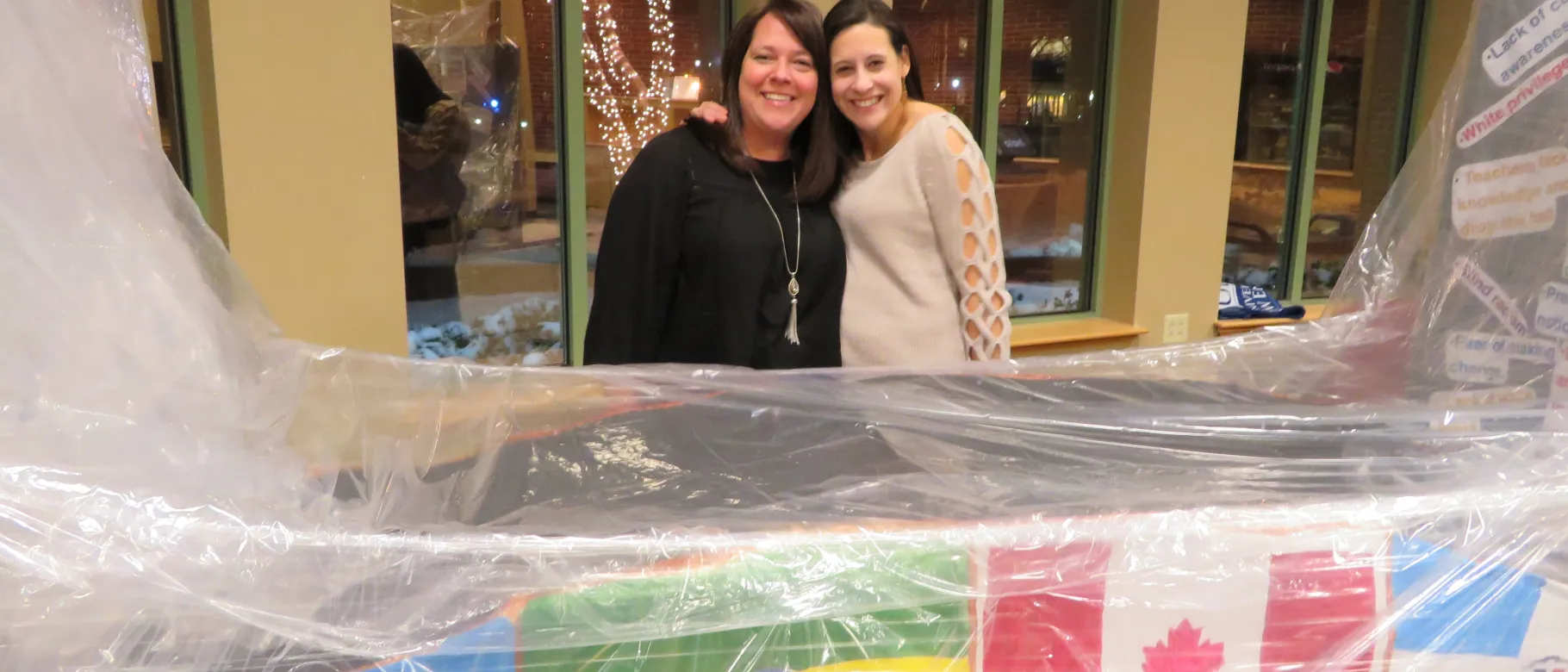Bridging the gap for social inclusion: UNE students work with local teens

During the Fall 2016 semester, two students from the University of New England’s School of Social Work, along with Professor Lori Power, M.A., Ed.D., designed and took part in an independent study to explore the barriers to social inclusion that Portland teenagers and young adults from various cultural backgrounds face. The two designed the independent study as part of their requirements for the Applied Arts and Social Justice Certificate, offered in UNE’s campus-based and hybrid Social Work programs.
Lisa DiGiovanni and Lauren Dembski, both 2016 School of Social Work graduates, collaborated with a Portland youth group headed by David Thete called Kesha Wazo, which means “tomorrow’s ideas.” The UNE students facilitated discussions and focus groups with Kesho Wazo, learning about young people’s lives and the sometimes harsh realities experienced by people of color in the nation’s Whitest state. DiGiovanni, Dembski and Kesho Wazo also worked with Casco Bay High school, running focus groups in the classroom to include students thought and experiences. They supplemented these discussions with written and creative media, engaging the community in sometimes uncomfortable but certainly critical conversations around issues of race.
The UNE students and Kesho Wazo participants used the material generated from the focus groups to create an arts project: a physical bridge that depicts ideas of how the community can bridge racial gaps that exist in our society. They revealed the bridge at an event on the Portland campus in December and shared stories, poetry, and ideas for future collaboration with the professors, students, and members of the community.
“As a social worker, there is no greater inspiration than listening to a person’s raw, firsthand experience,” said Dembski. “By raising their voices, the young people who participated in this project highlighted the troubling realities of injustices that exist right here in our community. But their voices also instilled hope as they expressed their generation’s desire for social reform and change.”
“This project was an amazing experience that built relationships with young adults and fueled our passion to effect change,” said DiGiovanni. “UNE’s Applied Arts and Social Justice program gave us encouragement and support to integrate a hands-on approach within our community while providing knowledge that I can use in my future career.”
Read more about DiGiovanni and Dembski’s experience in their blog.
To learn more about the University of New England’s Westbrook College of Health Professions visit www.une.edu/wchp
To apply, visit www.une.edu/admissions